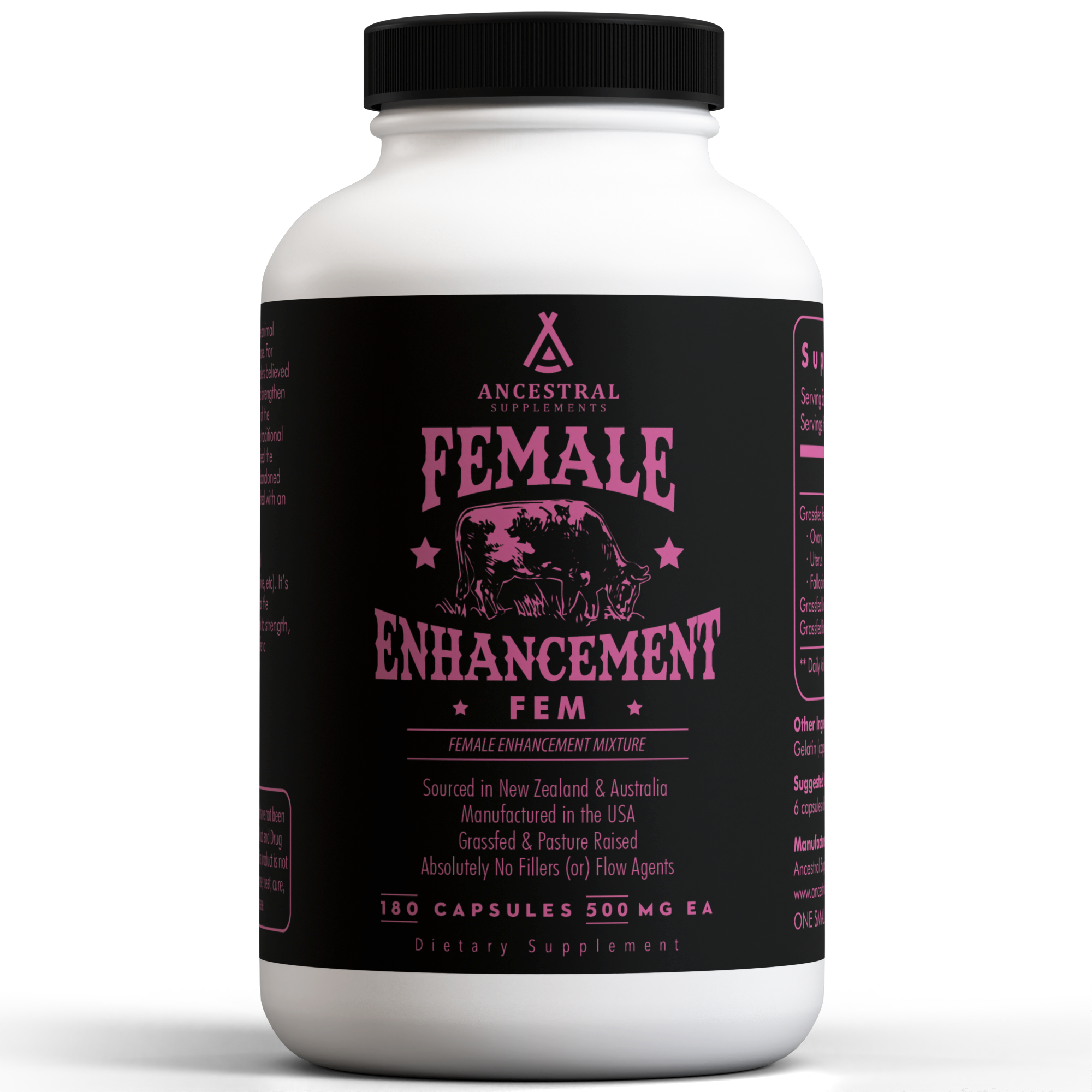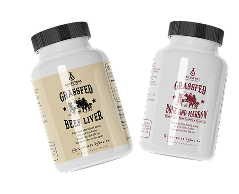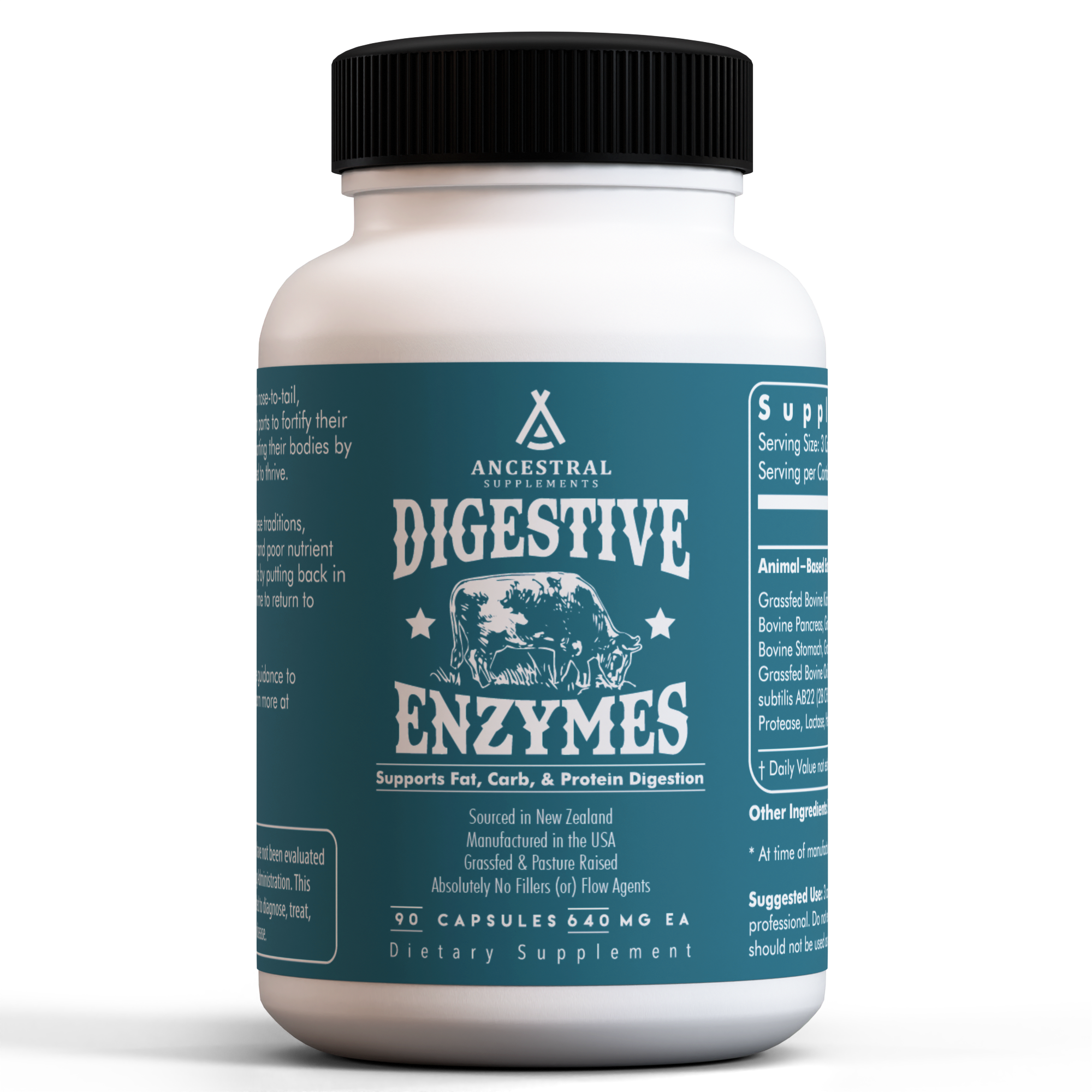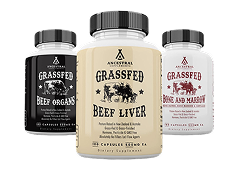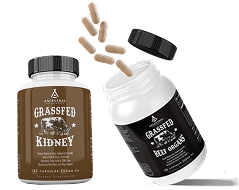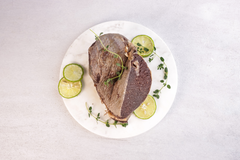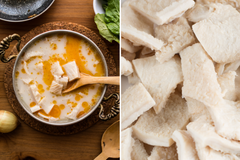The Gut-Optimizing Magic of Fermentation

What would we do without fermentation? It would mean living in a world where bread doesn't exist and wine bottles don't line the supermarket shelves. And you know what else? The human species wouldn't exist.
Fermentation is a natural process that has been used for centuries to preserve food and enhance its nutritional value. It involves the breakdown of carbohydrates by microorganisms such as bacteria and yeast, which produce lactic acid, alcohol, and other compounds that give fermented foods their unique flavor and texture.
But fermentation is not just about taste and preservation. It also has numerous health benefits, especially for the gut. The gut is home to trillions of microorganisms, collectively known as the gut microbiota, which play a crucial role in digestion, immunity, and overall health.
Fermented foods are rich in probiotics, which are live microorganisms that can improve the balance of the gut microbiota and promote digestive health. Probiotics have been shown to reduce inflammation, boost immunity, and even improve mental health.
In addition to probiotics, fermented foods also contain prebiotics, which are indigestible fibers that feed the beneficial bacteria in the gut. This can help to increase the diversity and abundance of the gut microbiota, which is associated with better health outcomes.
Some of the most popular fermented foods include yogurt, kefir, sauerkraut, kimchi, miso, and tempeh. These foods are not only delicious but also easy to incorporate into your diet. You can add yogurt to your smoothie, top your salad with sauerkraut, or enjoy a bowl of miso soup for lunch.
So, the next time you reach for a bottle of wine or a slice of bread, remember the magic of fermentation and how it has shaped our world and our health.
And we owe it all to good old-fashioned bacteria for our very existence! Let's get into some of the benefits of eating fermented foods on a regular basis.
Our Ancestors Ate Fermented Foods
You probably know that fermented foods like kimchi, sauerkraut, and yogurt are great for your gut. But you may not realize that these foods are also some of the oldest forms of food preservation—and they've been around for thousands of years!
In the past few years, Westerners have started to wake up to the many health benefits that fermented foods offer. But eating them is only half the battle: The other half is learning how to make them yourself at home.
Fermentation is a natural process that preserves food and enhances its flavor. It's also incredibly easy (much more so than canning), since it requires no special equipment or boiling jars in hot water (which tends to kill off good bacteria).

What's Fermentation?
Fermenting foods is simply a process that allows bacteria to turn sugar into alcohol or acid. These reactions are catalyzed by the enzymes in yeast, which are themselves produced by other bacteria (lactic acid bacteria).
This can happen naturally in your kitchen when you leave vegetables out on the counter to "ripen." But it's also often done intentionally through fermentation, which has been used throughout history to preserve food and create alcoholic beverages like beer and wine.
In addition to producing alcohol and lactic acid, these processes also produce vitamin B12 (a nutrient found only in animal products), so it's not an exact science—but we're getting ahead of ourselves!

Fermentation May Help You Break Down Food
In the process of digestion, your body breaks down carbohydrates, protein and fat into simple sugars (like glucose), amino acids and fatty acids. The digestive system also produces enzymes that facilitate this breakdown process — but sometimes these enzymes don’t work enough or fast enough to keep up with the demand for digestion. This can lead to indigestion and bloating, as well as other gastrointestinal issues like constipation or diarrhea.
But when you eat fermented foods, they provide those missing enzymes that can help aid in breaking down your food more efficiently—which means less gas (or none at all!) and faster elimination of waste once you’ve eaten something yummy!
Give the Good Guys a Boost!
Fermentation is the process of transforming food into probiotics, or good gut bacteria. The fermentation can take place anywhere in your body, but it usually takes place in the large intestine (colon). The benefits of having good gut bacteria include:
- Less bloating and gas
- Improved digestion and nutrient absorption
- A healthy immune system
- Reducing bad bacteria

Fermented Foods May Strengthen Your Immune System
You may have heard that fermented foods are good for you. You might have even tried a few but found them unpalatable. This is because fermented foods are active in many ways. They help strengthen immune function by supporting healthy gut bacteria and creating an acidic environment in the gut, which can aid in digestion and absorption of nutrients.
Fermented foods may also help with:
- Allergies
- Autoimmune diseases (e.g., rheumatoid arthritis or psoriasis)
- Inflammatory bowel disease (IBD) like Crohn’s disease or ulcerative colitis
- Irritable bowel syndrome (IBS)
- Colds/flus/sinus infections
- Skin conditions (acne)
- Nutrient deficiencies, such as low iron levels
- Bone density loss prevention
- Blood pressure control
- Cholesterol reduction
- Weight loss
- Reduced stress
- Improved energy levels and more!
Move Aside, Cancer!
Fermented food could help prevent cancer. According to an article published by the National Institutes of Health (NIH), fermented foods have been found to have a number of anti-carcinogenic properties, including:
- Anti-tumor effects in some types of cancers
- Inhibition of tumor growth in animal studies
- Protection against DNA damage caused by carcinogens and radiation exposure
So Many Options, So Little Time
- Kefir (fermented milk, similar to yogurt, but more liquified)
- Cultured vegetables like raw sauerkraut, pickles and kimchi have been around for thousands of years. They're delicious, packed with probiotics and are easy to make at home. If you've never tried these, start off with a small amount—you don't want to overdo it on the sour flavor.
- Natto (fermented soybeans)
- Kombucha (fermented tea)
- Raw cheese

The Many Benefits to Eating Fermented Foods on a Regular Basis
Eating fermented foods can help reduce the risk of cancer and boost your immune system. Fermentation creates a kind of "factory" in your gut, which is exactly what you want given that most people are deficient in digestive enzymes.
When it comes to eating fermented foods for improved gut health, think about how much better you feel when you eat yogurt or kimchi (fermented cabbage), compared to when you eat ice cream or other processed sugars. Even if this doesn't do anything for your mood, there's no doubt that certain foods have different effects on our bodies than others do—we just don't always notice them right away because we're used to eating them so often!
If this article has inspired you to put some fermented food into your diet, don’t worry—there are plenty of ways to do so. You can start with simple things like adding pickles or sauerkraut to your meals, or even just adding a dash of apple cider vinegar in your cooking.
The most important thing is that you have fun with it and enjoy the taste! Above all, we're here to help you thrive in every way possible... And fermented foods can be such a big part of that.

